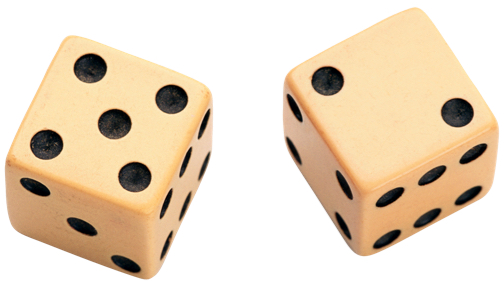Luck

Nobel Prize winner Daniel Kahneman in his 2011 (my copy) book Thinking, Fast and Slow says “Success = Talent + Luck.” Malcolm Gladwell in his 2008 book Outliers says it a little differently, but basically that, “… outliers in a particular field reached their lofty status through a combination of ability, opportunity, and utterly arbitrary advantage.”
“Great Success = a little more talent + a lot of luck” ~ Daniel Kahneman
In the U.S., we like to reward hard work. We want to say that people who put in Malcolm Gladwell’s “10,000 hours” (from the Outliers book) of practice and toil will be successful. People who expend this much time hope to be successful. And they may be successful—if they are lucky.
Leaving so much to luck is a hard pill to swallow!

We would like to know that at the end of the athlete’s daily three-, four-, or five-hour practice sessions for ten or more years, the athlete will take a Gold Medal at the Olympics. Wait. They have to get to the Olympics first. Sometimes they luck into it by doing particularly well on one day of trials. Alternatively, someone else breaks a leg or sprains an ankle. Good luck. Bad luck. It’s luck.
Johann Sebastian Bach wrote his famous musical pieces in the 1700s. Talented. Yes, but he was lucky enough to be born into a musical family. However, both his mother and father died (bad luck!) when he was nine, but he moved in with his older brother (good luck) because it led to some (fortuitous) events that enhanced his musicality to our benefit.
In Outliers, Malcolm Gladwell recounts the 10,000 hours + lucky paths of The Beatles and Bill Gates and many more successful outliers—in this case, people who are “situated away from or classed differently from a main or related body.”
Tony Robbins has another view on luck:
“The meeting of preparation with opportunity generates the offspring we call luck.”~ Tony Robbins
The difference is that Tony Robbins seems to imply that preparation and opportunity have a causal relation to luck. Gladwell (and I think Kahneman) would argue that you’re lucky to be in a position to spend your 10,000 hours of preparation in the first place—like Bach, maybe. It’s a nuanced, but important variation in viewpoint.
I offered a similar sentiment, coming from yet another position in my May 23, 2018, post entitled “Life’s A Crapshoot.” I was not looking at success at all, but rather that luck is a fact of life from the very beginning. (I was adopted.) We want to have control over who we are, but we do not. Sometimes that’s great. Sometimes, it’s terrible. Either way, it is frequently plain dumb luck.
but rather that luck is a fact of life from the very beginning. (I was adopted.) We want to have control over who we are, but we do not. Sometimes that’s great. Sometimes, it’s terrible. Either way, it is frequently plain dumb luck.
It looks like Daniel Kahneman, winner of the 2002 Nobel Prize in Economic Sciences, Malcolm Gladwell, and I agree!
Bottom line: I wish you luck. Both kinds. Why? Because sometimes it is by bad luck that we happen on to good luck. I also encourage you to spend your 10,000 hours to master your art, craft, science, etc., but I don’t want you to think that’s your only path. We have many multiples of 10,000 hours during an average lifetime. Perhaps you want to try your luck at something else. There’s no harm in trying. In fact, it may very well be your luck to fail at the first attempt so you can succeed at whatever’s next.